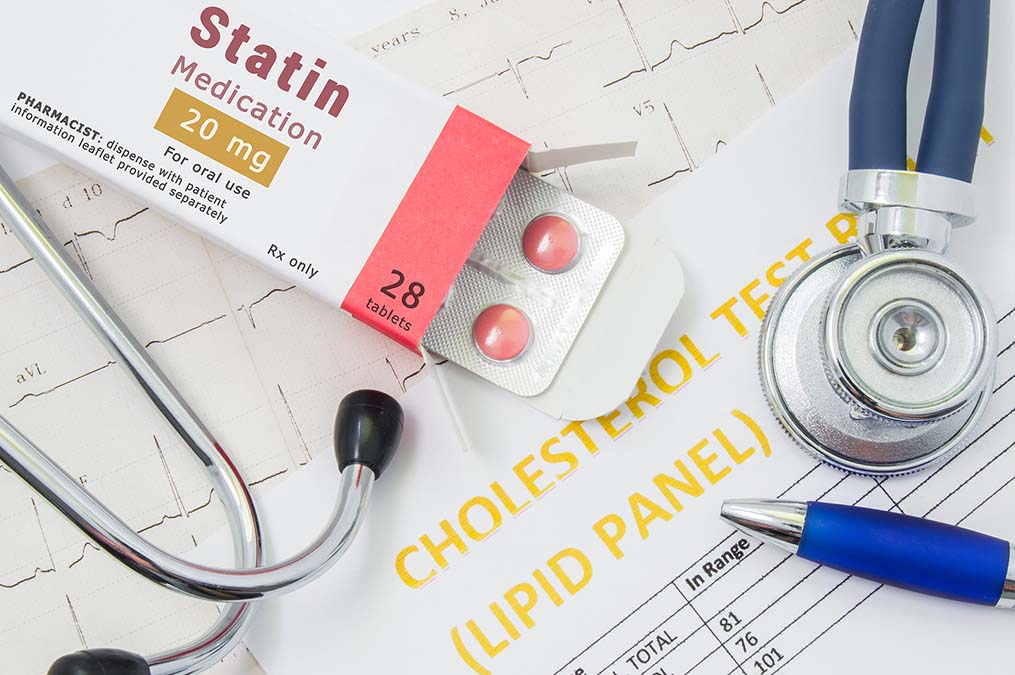 Most people develop mild cognitive impairment as they age, but it is only in some cases that this condition progresses to full-blown dementia or Alzheimer’s disease.
Most people develop mild cognitive impairment as they age, but it is only in some cases that this condition progresses to full-blown dementia or Alzheimer’s disease.
A new study in The Journal of Nuclear Medicine has just identified one common medication that causes this serious transition from a little confused to full-blown dementia.
This is the most prescribed drug in the world—so if you’re over 50, chances are high that you’re taking it. And you probably shouldn’t be.
The researchers recruited 392 people who were already enrolled in the Alzheimer’s Disease Neuroimaging Initiative from locations all over the United States. They were all suffering from some level of mild cognitive impairment (MCI).
They first divided the participants into several groups based on their cognitive status, their cholesterol levels at the beginning of the study, and the type of statin they were taking.
There are two types of statins: hydrophilic statins dissolve in water and primarily target the liver, while lipophilic statins dissolve in fat and target all tissues throughout the body.
The researchers also performed PET scans (positron emission tomography scans) on their subjects to examine metabolism in various parts of their brains, specifically to examine whether metabolism declined in areas associated with the development of Alzheimer’s disease.
Metabolism is a good test to check for Alzheimer’s, because the conversion of food to energy enables cells to work. A serious decline in metabolism indisputably demonstrates that the tissue in a specific area is highly dysfunctional or dying.
These PET scans showed a significant reduction of metabolism in the posterior cingulate cortices of the subjects who were taking lipophilic statins. The posterior cingulate cortex is the part of the brain that declines most quickly during the beginning stages of Alzheimer’s disease.
This metabolic decline did not occur in the brains of people who were not taking hydrophilic statins, or among people who had very high cholesterol at the beginning of the study.
The researchers observed their subjects for eight years and could see the metabolic reduction clearly after five years.
This helps answer the question of whether statins cause dementia; some studies have found that they do not cause dementia while others have found that they do.
It also helps to explain why dementia has become such a pandemic, and it underlines again how unwise it is to give a drug with such life-destroying side effects to such incredibly high numbers of people. Especially because it’s highly questionable whether or not statins actually help at all to prevent stroke and heart attack.
Better than taking statins is cutting out this one ingredient, responsible for all cholesterol plaque buildup—and it’s an ingredient that you didn’t even know you were consuming…
And if you’re experiencing these senior moments and want to give your brain a little boost (or even reverse dementia), then make sure you load up on this free ingredient explained here…

 Overcoming IBD
Overcoming IBD Multiple Sclerosis
Multiple Sclerosis Banishing Bronchitis
Banishing Bronchitis Gum Disease Gone
Gum Disease Gone Overcoming Onychomycosis
Overcoming Onychomycosis Neuropathy No More
Neuropathy No More The Prostate Protocol
The Prostate Protocol Brain Booster
Brain Booster
 Ironbound
Ironbound
 Solution for Shingles
Solution for Shingles
 The Bone Density Solution
The Bone Density Solution
 The Ultimate Healing Protocol
The Ultimate Healing Protocol
 The Parkinson's Protocol
The Parkinson's Protocol
 The Chronic Kidney Disease Solution
The Chronic Kidney Disease Solution
 Overthrowing Anxiety
Overthrowing Anxiety The Fatty Liver Solution
The Fatty Liver Solution The Hypothyroidism Solution
The Hypothyroidism Solution
 The End of Gout
The End of Gout The Blood Pressure Program
The Blood Pressure Program
 The Oxigized Cholesterol Strategy
The Oxigized Cholesterol Strategy
 Stop Snoring And Sleep Apnea Program
Stop Snoring And Sleep Apnea Program
 The Arthritis Strategy
The Arthritis Strategy The Vertigo & Dizziness Program
The Vertigo & Dizziness Program The 3-Step Diabetes Strategy
The 3-Step Diabetes Strategy Hemorrhoids Healing Protocol
Hemorrhoids Healing Protocol The Erectile Dysfunction Master
The Erectile Dysfunction Master Weight Loss Breeze
Weight Loss Breeze The IBS Program
The IBS Program The Insomnia Program
The Insomnia Program The Migraine and Headache Program
The Migraine and Headache Program The Neck Pain Solution
The Neck Pain Solution The Menopause Solution
The Menopause Solution The Ejaculation Master
The Ejaculation Master The TMJ Solution
The TMJ Solution The Acid Reflux Solution
The Acid Reflux Solution The Fibromyalgia Solution
The Fibromyalgia Solution The Psoriasis Strategy
The Psoriasis Strategy